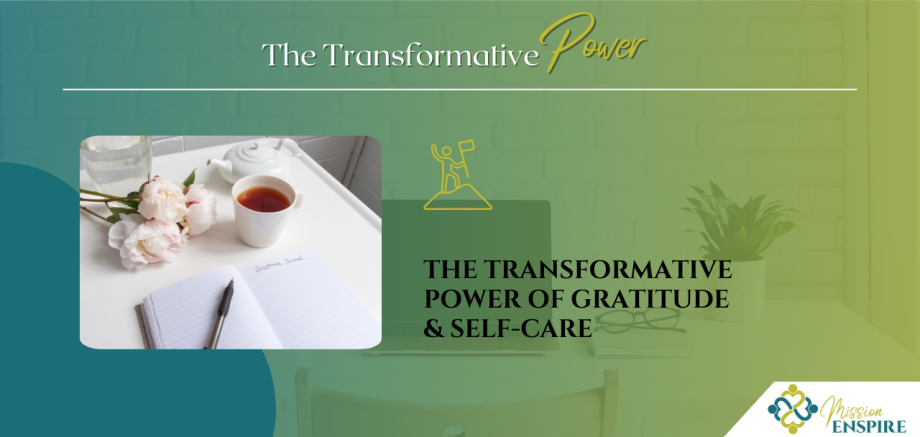Let’s start with gratitude, shall we? Now, I know what you’re thinking – “Thanks for reminding me to be grateful, Captain Obvious.” But hear me out, because this isn’t your run-of-the-mill gratitude spiel.
Gratitude and Psychology: Unlocking the Science of Happiness
Three decades ago, Martin Seligman and his colleagues launched the groundbreaking field of “Positive Psychology,” a revolutionary concept that shifted the focus of psychological research from studying mental illness and negative emotions to exploring the transformative power of positive human experiences. This paradigm shift paved the way for the scientific investigation of emotions such as gratitude, optimism, forgiveness, happiness, compassion, and altruism – previously overlooked aspects of the human psyche.
What we have learned through this research is profound: cultivating positive personal attributes fortifies us during times of adversity and emotional turmoil, ultimately leading to greater happiness, resilience, and overall well-being. And among all the attributes one can develop, gratitude stands out as the most strongly associated with robust mental health. Gratitude is our ability to feel and express thankfulness and appreciation for the blessings, both large and small, that grace our lives. Historically, the study of this emotion was primarily confined to the realms of theology and philosophy. However, in the early 2000s, pioneering psychologist Robert Emmons began exploring gratitude through a scientific lens, paving the way for a deeper understanding of its psychological impact.
Emmons’ groundbreaking research revealed that expressing gratitude has profoundly positive effects on mental, physical, and relational well-being. Individuals who regularly practice gratitude tend to experience higher levels of happiness, life satisfaction, and overall positive emotions. Moreover, the benefits of gratitude extend far beyond the emotional realm – research has shown that grateful individuals exhibit better sleep quality, lower levels of inflammation, and a reduced risk of developing various chronic health conditions. But the transformative power of gratitude doesn’t stop there. Studies have also demonstrated that cultivating an attitude of gratitude can enhance interpersonal relationships, foster stronger social connections, and even improve academic and professional performance. By shifting our focus toward the positive aspects of our lives, we create a ripple effect that radiates outward, impacting not only our own well-being but also the lives of those around us.
One of the most remarkable aspects of gratitude is its ability to reshape our perspective and rewire our brains for positivity. Through the practice of consciously acknowledging and appreciating the good in our lives, we train our minds to seek out and savor the positive experiences that might otherwise go unnoticed. This cognitive shift can have a profound impact on our overall outlook, helping us to navigate challenges with greater resilience and find joy in even the most mundane moments.
Unlock Joy and Vitality Through the Power of Gratitude
Cultivating a daily gratitude practice is a simple yet profoundly transformative habit that can uplift your mental and physical well-being. Here are some easy-to-implement tips to help you harness the healing power of gratitude:
- Embrace Self-Love: Begin each day by acknowledging and appreciating five wonderful qualities about yourself. It may feel awkward initially, but with time, this self-affirmation exercise will become second nature and boost your self-esteem.
- Gratitude Journaling: You don’t need an elaborate diary to start journaling. Grab a notebook, your daily planner, or even a stack of sticky notes, and jot down a few things you’re grateful for each day. This simple act can help you focus on the positive aspects of your life. A great resource for this is my Gratitude Devotional Journal.
- Express Your Appreciation: Think of someone who has positively impacted your life – a mentor, friend, or loved one. Take the time to visit them or reach out and express your heartfelt gratitude for their influence and support. A sincere “thank you” can strengthen bonds and spread joy.
- Find a Gratitude Companion: Sharing your gratitude practice with someone can make it even more meaningful. Find a partner – your spouse, child, or friend – and set aside a few moments a few times a week to exchange the blessings you’re grateful for. This shared experience can deepen your connections and amplify the positive effects of gratitude.
By incorporating these simple yet powerful practices into your daily routine, you’ll cultivate a mindset of abundance, appreciation, and overall well-being. Embrace the transformative power of gratitude and watch as joy and vitality blossom in your life. Also did you know that practicing gratitude has been scientifically proven to improve your physical health? No, seriously! Numerous studies have shown that feeling and expressing gratitude can lower blood pressure, improve immune function, and even reduce the risk of heart disease. It’s like a natural stress-buster and a free pass to better well-being, all rolled into one.
But enough with the science lesson (for now). Let’s talk about the real magic of gratitude – its ability to shift our perspective and fill us with warmth, even on the grayest of days. You know that feeling when you stumble upon an unexpected act of kindness, or when you catch a breathtaking sunset on your daily commute? That’s gratitude working its special way of turning the ordinary into the extraordinary.
Redefining Self-Care: It’s More Than Face Masks
Moving on to self-care, a concept that’s often misunderstood and, dare I say, a tad underrated in our hustle-obsessed culture. Now, I get it – the term “self-care” might conjure up images of luxurious spa days and indulgent pampering sessions. And while those things are lovely (and totally valid forms of self-care), true self-care goes much deeper than that. At its core, self-care is about nurturing your physical, emotional, and mental well-being in a way that honors your unique needs and boundaries. It’s about checking in with yourself regularly, identifying areas of stress or depletion, and actively taking steps to replenish your reserves.
And here’s a fun little nugget for you: Did you know that the concept of “self-care” didn’t even enter the mainstream lexicon until the 1970s? That’s right, folks – we’ve only been collectively acknowledging the importance of tending to our own needs for a mere half-century or so. Talk about a long-overdue wake-up call!
Here are few ways to care for oneself:
- Setting firm boundaries around your time and energy commitments.
- Learning to say “no” to obligations that don’t align with your values.
- Carving out moments of solitude to disconnect from external noise and reconnect with yourself.
- Embracing nourishing rituals like journaling, meditation, or daily movement practices.
- Seeking support from a therapist or trusted friend during challenging seasons of life.
- Engaging in hobbies or creative pursuits that bring you joy and fulfillment.
- Prioritizing adequate sleep, nutrition, and hydration.
- Spending time in nature or engaging in outdoor activities.
- Setting aside time for reflection, introspection, and goal-setting.
In many ways, the rise of the self-care movement is a powerful reclamation of our inherent worth and a defiant stance against the toxic grind culture that so often prioritizes productivity over personhood. By making self-care a non-negotiable priority, we’re sending a message that our well-being matters, that our cup must be filled before we can pour into others.
As we journey through life, constantly striving for our goals and dreams, it’s all too easy to get caught up in the relentless hustle. We push ourselves to the brink, chasing after accomplishments and accolades, often at the expense of our own well-being. But what if the secret to true fulfillment lies not in the destination, but in the way we navigate the path itself? Gratitude and self-care are the twin compasses that can guide us towards a life of balance, joy, and deep contentment. By cultivating a practice of gratitude, we learn to savor the beauty that surrounds us, even amidst the chaos. We train our minds to seek out the positive, to find wonder in the mundane, and to appreciate the incredible gift of simply being alive.
Have you ever wondered in what small yet meaningful ways can you begin weaving the practices of gratitude and self-care into the fabric of your daily life today? Perhaps the first step is to start noticing – noticing the little joys, the helping hands, and the quiet moments that make life richer. Let’s catch up next week as we close out this month with a topic that I am very fond of – community.

